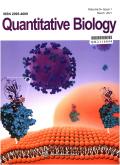SimHOEPI: A resampling simulator for generating single nucleotide polymorphism data with a high‐order epistasis model
IF 0.6
4区 生物学
Q4 MATHEMATICAL & COMPUTATIONAL BIOLOGY
引用次数: 0
Abstract
Epistasis is a ubiquitous phenomenon in genetics, and is considered to be one of main factors in current efforts to unveil missing heritability of complex diseases. Simulation data is crucial for evaluating epistasis detection tools in genome‐wide association studies (GWAS). Existing simulators normally suffer from two limitations: absence of support for high‐order epistasis models containing multiple single nucleotide polymorphisms (SNPs), and inability to generate simulation SNP data independently. In this study, we proposed a simulator SimHOEPI, which is capable of calculating penetrance tables of high‐order epistasis models depending on either prevalence or heritability, and uses a resampling strategy to generate simulation data independently. Highlights of SimHOEPI are the preservation of realistic minor allele frequencies in sampling data, the accurate calculation and embedding of high‐order epistasis models, and acceptable simulation time. A series of experiments were carried out to verify these properties from different aspects. Experimental results show that SimHOEPI can generate simulation SNP data independently with high‐order epistasis models, implying that it might be an alternative simulator for GWAS.SimHOEPI:利用高阶外显率模型生成单核苷酸多态性数据的再采样模拟器
外显率是遗传学中无处不在的现象,被认为是目前揭示复杂疾病缺失遗传性的主要因素之一。模拟数据对于评估全基因组关联研究(GWAS)中的外显子检测工具至关重要。现有的模拟器通常存在两个局限:不支持包含多个单核苷酸多态性(SNP)的高阶表观模型,以及无法独立生成模拟 SNP 数据。在这项研究中,我们提出了一种模拟器 SimHOEPI,它能够根据患病率或遗传率计算高阶外显率模型的渗透率表,并使用重采样策略独立生成模拟数据。SimHOEPI 的亮点是在采样数据中保留了真实的小等位基因频率,精确计算和嵌入高阶外显率模型,以及可接受的模拟时间。为了从不同方面验证这些特性,我们进行了一系列实验。实验结果表明,SimHOEPI 可以独立生成具有高阶外显率模型的模拟 SNP 数据,这意味着它可以成为 GWAS 的替代模拟器。
本文章由计算机程序翻译,如有差异,请以英文原文为准。
求助全文
约1分钟内获得全文
求助全文
来源期刊

Quantitative Biology
MATHEMATICAL & COMPUTATIONAL BIOLOGY-
CiteScore
5.00
自引率
3.20%
发文量
264
期刊介绍:
Quantitative Biology is an interdisciplinary journal that focuses on original research that uses quantitative approaches and technologies to analyze and integrate biological systems, construct and model engineered life systems, and gain a deeper understanding of the life sciences. It aims to provide a platform for not only the analysis but also the integration and construction of biological systems. It is a quarterly journal seeking to provide an inter- and multi-disciplinary forum for a broad blend of peer-reviewed academic papers in order to promote rapid communication and exchange between scientists in the East and the West. The content of Quantitative Biology will mainly focus on the two broad and related areas: ·bioinformatics and computational biology, which focuses on dealing with information technologies and computational methodologies that can efficiently and accurately manipulate –omics data and transform molecular information into biological knowledge. ·systems and synthetic biology, which focuses on complex interactions in biological systems and the emergent functional properties, and on the design and construction of new biological functions and systems. Its goal is to reflect the significant advances made in quantitatively investigating and modeling both natural and engineered life systems at the molecular and higher levels. The journal particularly encourages original papers that link novel theory with cutting-edge experiments, especially in the newly emerging and multi-disciplinary areas of research. The journal also welcomes high-quality reviews and perspective articles.
 求助内容:
求助内容: 应助结果提醒方式:
应助结果提醒方式:


